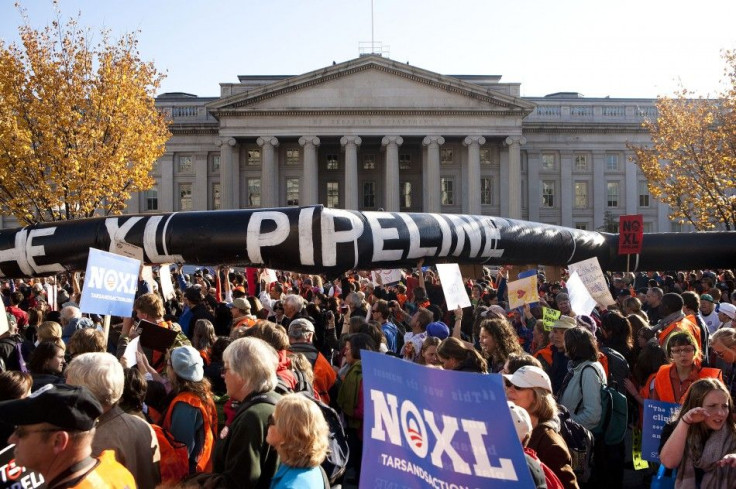TransCanada's Keystone XL May Be A Step Closer To Get Approval After Court Upholds Ruling Over Sierra Club's Attempt To Get Injunction Over One Of Its Pipelines

TransCanada Corporation (NYSE:TRP), which has been contracted to build the controversial Keystone XL pipeline to transport crude oil from Alberta, Canada, to refineries on the U.S. Gulf Coast, may have an advantage over environmentalists opposed to the project.
A U.S. Circuit Court of Appeals in Denver refused to temporarily stop construction of the project's second portion, the Keystone Gulf Coast pipeline, which would bring more than 700,000 barrels of oil a day from the Cushing hub to Texas refineries, and which is 95 percent complete.
The Sierra Club, Clean Energy Future of Oklahoma and the East Texas Sub Regional Planning Commission had sued the U.S. Army Corps of Engineers, saying that the pipeline would pose significant environmental risks. They wanted to put an injunction on Keystone XL's construction while the lawsuit was being heard, but a district court denied the request.
In a split decision, judges from the 10th U.S. Circuit Court of Appeals upheld the ruling saying that the groups weren't able to prove that environmental harm would outweigh the economic risks of halting construction.
The appeals court said it was “undisputed that further delay [would] cost hundreds of thousands of dollars each day."
The environmental groups also could not post a bond to cover the energy giant’s losses if the company won the lawsuit.
“We are pleased that the Court of Appeals has agreed that the Sierra Club’s attempt to get an injunction to halt construction was 'woefully deficient' and that the harm to TransCanada [from granting a preliminary injunction] was significantly greater than the 'minimal impact on the environment,'” TransCanada spokesman Shawn Howard told the International Business Times.
The Keystone project needs a presidential permit because it would cross the U.S.-Canada border, but Obama has delegated the State Department to review whether the project is in the "national interest."
“The net effects of the pipeline’s impact on our climate will be absolutely critical to determining whether this project is allowed to go forward," Obama has said.
The president faces mounting pressure to exploit the strategic and lucrative commodity while also ensuring that his climate action plan reaches its goal. But TransCanada is worried the approval may not occur.
When asked whether the recent ruling will help the chances for an approval by the president, Howard was hopeful.
"While the outcome here doesn’t relate directly to the presidential permit process, the finding of minimal impact to the environment is certainly positive and continues to demonstrate all of the reasonable steps we are taking to build modern American energy infrastructure safely and responsibly," Howard said.
© Copyright IBTimes 2024. All rights reserved.





















